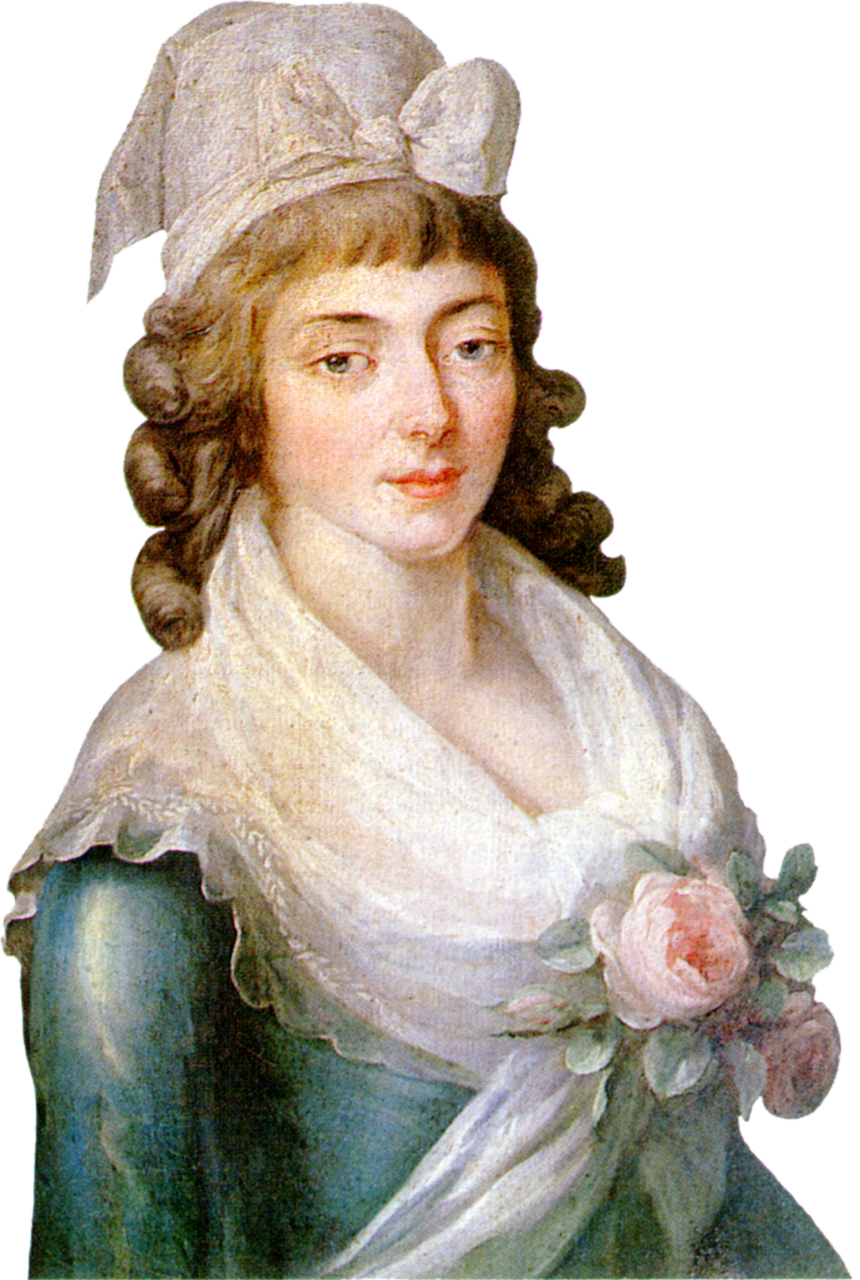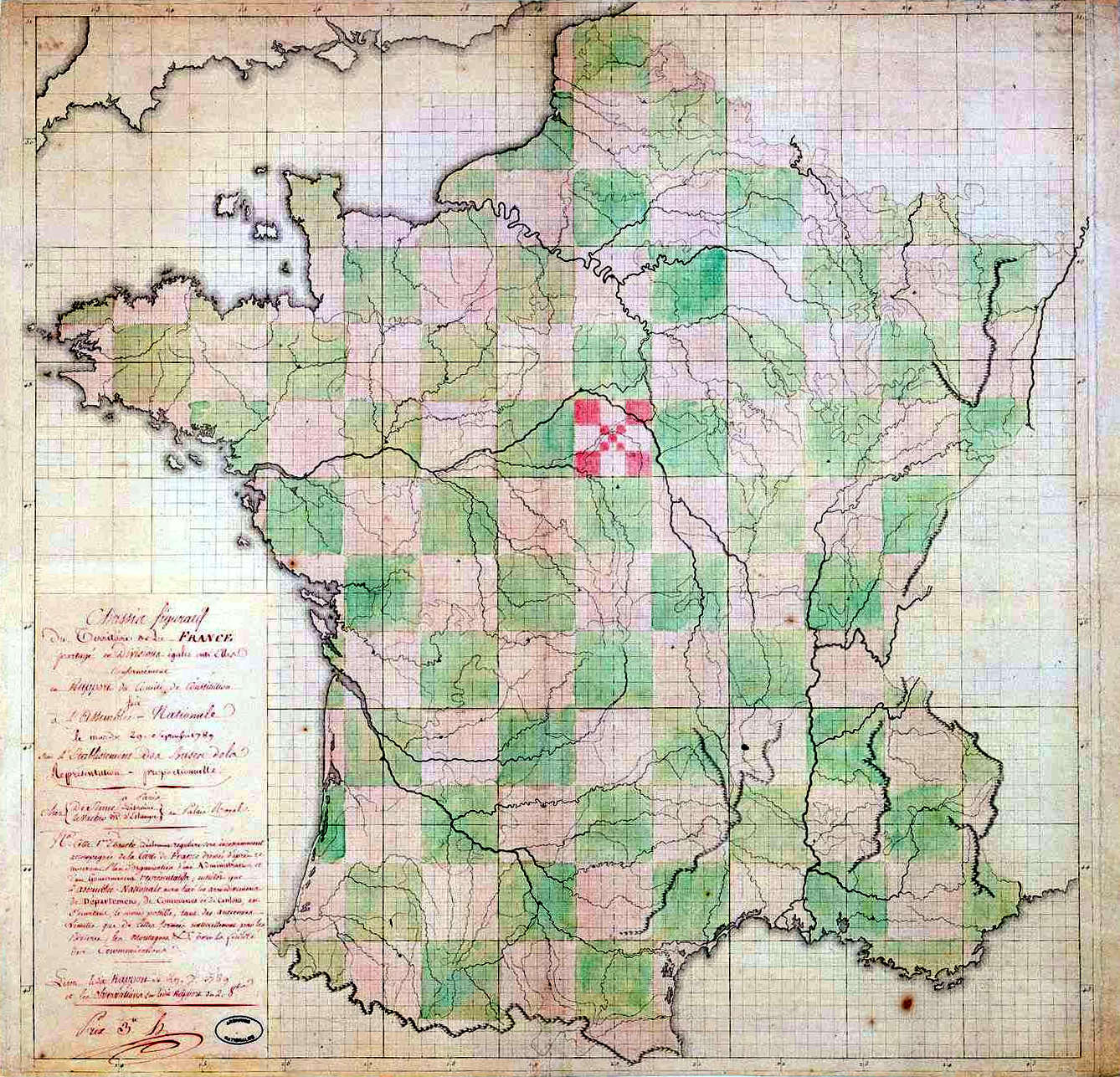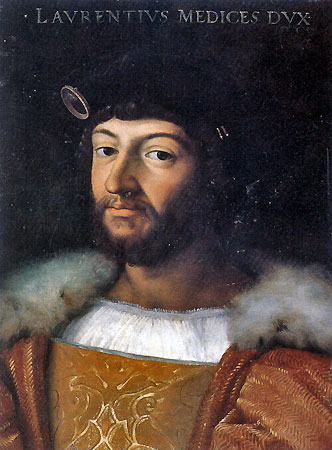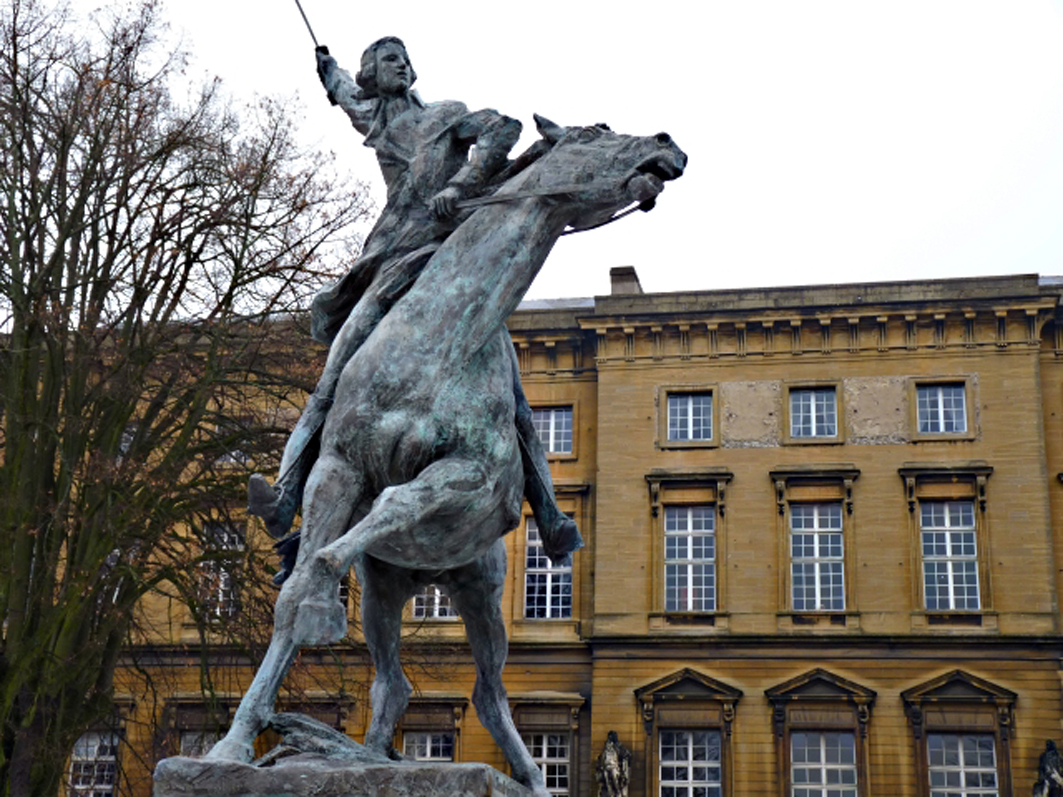|
Jean Baptiste Louvet De Couvray
Jean-Baptiste Louvet de Couvray (; 12 June 1760 – 25 August 1797) was a French novelist, playwright and journalist. Life Early life and literary works Louvet was born in Paris as the son of a stationer and became a bookseller's clerk. He first attracted attention with the first part of his novel ''Les Amours du chevalier de Faublas'' (Paris, 1787; English translation illustrated by etchings by Louis Monzies in 1898), followed in 1788 by ''Six semaines de la vie du chevalier de Faublas'' and in 1790 by ''La Fin des amours du chevalier de Faublas''. The heroine, Lodoiska, was based on the wife of a jeweller in the Palais Royal, with whom Louvet had an affair. She divorced her husband in 1792 and married Louvet in 1793. His second novel, ''Émilie de Varmont'' (1791), was intended to prove the utility and necessity of divorce and of the marriage of priests, questions raised by the French Revolution; all his works tended to advocate revolutionary ideals. He attempted to have on ... [...More Info...] [...Related Items...] OR: [Wikipedia] [Google] [Baidu] |
Paris
Paris () is the Capital city, capital and List of communes in France with over 20,000 inhabitants, largest city of France. With an estimated population of 2,048,472 residents in January 2025 in an area of more than , Paris is the List of cities in the European Union by population within city limits, fourth-most populous city in the European Union and the List of cities proper by population density, 30th most densely populated city in the world in 2022. Since the 17th century, Paris has been one of the world's major centres of finance, diplomacy, commerce, culture, Fashion capital, fashion, and gastronomy. Because of its leading role in the French art, arts and Science and technology in France, sciences and its early adoption of extensive street lighting, Paris became known as the City of Light in the 19th century. The City of Paris is the centre of the Île-de-France region, or Paris Region, with an official estimated population of 12,271,794 inhabitants in January 2023, or ... [...More Info...] [...Related Items...] OR: [Wikipedia] [Google] [Baidu] |
Civic Virtue
Civic virtue refers to the set of habits, Value (ethics), values, and Attitude (psychology), attitudes that promote the general welfare and the effective functioning of a society. Closely linked to the concept of citizenship, civic virtue () represents, therefore, the disposition of citizens to put the common good () before special interests. The identification of the character traits that constitute civic virtue has been a major concern of political philosophy. The term ''civility'' refers to behavior between persons and groups that conforms to a society, social mode (that is, in accordance with the civil society), as itself being a foundation of society and law. In republics Civic virtues are historically taught as a matter of chief concern in nations under republican forms of government, and societies with cities. When final decisions on public matters are made by a monarch, it is the monarch's virtues which influence those decisions. When a broader class of people become the d ... [...More Info...] [...Related Items...] OR: [Wikipedia] [Google] [Baidu] |
Deism
Deism ( or ; derived from the Latin term '' deus'', meaning "god") is the philosophical position and rationalistic theology that generally rejects revelation as a source of divine knowledge and asserts that empirical reason and observation of the natural world are exclusively logical, reliable, and sufficient to determine the existence of a Supreme Being as the creator of the universe. More simply stated, Deism is the belief in the existence of God—often, but not necessarily, an impersonal and incomprehensible God who does not intervene in the universe after creating it, solely based on rational thought without any reliance on revealed religions or religious authority. Deism emphasizes the concept of natural theology—that is, God's existence is revealed through nature. Since the 17th century and during the Age of Enlightenment, especially in 18th-century England, France, and North America, various Western philosophers and theologians formulated a critical reject ... [...More Info...] [...Related Items...] OR: [Wikipedia] [Google] [Baidu] |
Girondist
The Girondins (, ), also called Girondists, were a political group during the French Revolution. From 1791 to 1793, the Girondins were active in the Legislative Assembly and the National Convention. Together with the Montagnards, they initially were part of the Jacobin movement. They campaigned for the end of the monarchy, but then resisted the spiraling momentum of the Revolution, which caused a conflict with the more radical Montagnards. They dominated the movement until their fall in the insurrection of 31 May – 2 June 1793, which resulted in the domination of the Montagnards and the purge and eventual mass execution of the Girondins. This event is considered to mark the beginning of the Reign of Terror. The Girondins were a group of loosely affiliated individuals rather than an organized political party and the name was at first informally applied because the most prominent exponents of their point of view were deputies to the Legislative Assembly from the département o ... [...More Info...] [...Related Items...] OR: [Wikipedia] [Google] [Baidu] |
Loiret
Loiret (; ) is a department in the Centre-Val de Loire region of north-central France. It takes its name from the river Loiret, which is contained wholly within the department. In 2019, Loiret had a population of 680,434.Populations légales 2019: 45 Loiret INSEE Its is , which is about southwest of Paris. As well as being the regional prefecture, it is a historic city on the banks of the Loire. It has a large central area with many historic buildings and mansions. [...More Info...] [...Related Items...] OR: [Wikipedia] [Google] [Baidu] |
Département In France
In the administrative divisions of France, the department (, ) is one of the three levels of government under the national level ("territorial collectivity, territorial collectivities"), between the Regions of France, administrative regions and the Communes of France, communes. There are a total of 101 departments, consisting of ninety-six departments in metropolitan France, and five Overseas department and region, overseas departments, which are also classified as overseas regions. Departments are further subdivided into 333 Arrondissements of France, arrondissements and 2,054 Cantons of France, cantons (as of 2023). These last two levels of government have no political autonomy, instead serving as the administrative basis for the local organisation of police, fire departments, and, in certain cases, elections. Each department is administered by an elected body called a departmental council (France), departmental council ( , ). From 1800 to April 2015, these were called gene ... [...More Info...] [...Related Items...] OR: [Wikipedia] [Google] [Baidu] |
First French Empire
The First French Empire or French Empire (; ), also known as Napoleonic France, was the empire ruled by Napoleon Bonaparte, who established French hegemony over much of continental Europe at the beginning of the 19th century. It lasted from 18 May 1804 to 6 April 1814 and again briefly from 20 March 1815 to 7 July 1815, when Napoleon was exiled to Saint Helena. Although France had already established a French colonial empire, colonial empire overseas since the early 17th century, the French state had remained a France in the early modern period, kingdom under the Bourbons and a French First Republic, republic after the French Revolution. Historians refer to Napoleon's regime as the ''First Empire'' to distinguish it from the restorationist ''Second French Empire, Second Empire'' (1852–1870) ruled by his nephew Napoleon III. On 18 May 1804 (28 Floréal year XII on the French Republican calendar), Napoleon was granted the title Emperor of the French (, ) by the French and w ... [...More Info...] [...Related Items...] OR: [Wikipedia] [Google] [Baidu] |
Legislative Assembly (France)
The Legislative Assembly () was the legislature of the Kingdom of France from 1 October 1791 to 20 September 1792 during the years of the French Revolution. It provided the focus of political debate and revolutionary law-making between the periods of the National Constituent Assembly and of the National Convention. Legislative Assembly saw an unprecedented turnover of four ministers of Justice, four ministers of Navy, six ministers of the interior, seven ministers of foreign affairs, and eight ministers of war. History Background The National Constituent Assembly dissolved itself on 30 September 1791. Upon Maximilien Robespierre's motion, it decreed that none of its members would be eligible for the next legislature. Its successor body, the Legislative Assembly, operating over the liberal French Constitution of 1791, lasted until 20 September 1792 when the National Convention was established after the insurrection of 10 August just the month before. The Legislative ... [...More Info...] [...Related Items...] OR: [Wikipedia] [Google] [Baidu] |
Niccolò Machiavelli
Niccolò di Bernardo dei Machiavelli (3 May 1469 – 21 June 1527) was a Florentine diplomat, author, philosopher, and historian who lived during the Italian Renaissance. He is best known for his political treatise '' The Prince'' (), written around 1513 but not published until 1532, five years after his death. He has often been called the father of modern political philosophy and political science. For many years he served as a senior official in the Florentine Republic with responsibilities in diplomatic and military affairs. He wrote comedies, carnival songs, and poetry. His personal correspondence is also important to historians and scholars of Italian correspondence. He worked as secretary to the second chancery of the Republic of Florence from 1498 to 1512, when the Medici were out of power. After his death Machiavelli's name came to evoke unscrupulous acts of the sort he advised most famously in his work, ''The Prince''. He concerned himself with the ways a ruler ... [...More Info...] [...Related Items...] OR: [Wikipedia] [Google] [Baidu] |
Jean Siffrein Maury
Jean-Sifrein Maury (; 26 June 1746 – 10 May 1817) was a French cardinal, archbishop of Paris, and former bishop of Montefiascone. Biography The son of a cobbler, he was born at Valréas in the Comtat-Venaissin, the enclave within France that belonged to the pope. He had three brothers. His first steps in education took place at the school in Valréas, where he completed the course in humanities at the age of thirteen. He spent a year at the minor seminary (high school) of Sainte-Garde, and then transferred to the major seminary of St. Charles, which was run by the Sulpician fathers. His acuteness was observed by the priests of the seminary at Avignon, where he was educated. He received the subdiaconate at Meaux. In 1765 he took up residence in Paris. He was ordained a priest at Sens by Cardinal Paul d'Albert de Luynes in 1767, having been granted a dispensation because he was below the canonical minimum age. Early efforts in eloquence He tried his fortune by writing ''é ... [...More Info...] [...Related Items...] OR: [Wikipedia] [Google] [Baidu] |
Gilbert Du Motier, Marquis De La Fayette
Marie-Joseph Paul Yves Roch Gilbert du Motier de La Fayette, Marquis de La Fayette (; 6 September 1757 – 20 May 1834), known in the United States as Lafayette (), was a French military officer and politician who volunteered to join the Continental Army, led by General George Washington, in the American Revolutionary War. Lafayette was ultimately permitted to command Continental Army troops in the decisive Siege of Yorktown in 1781, the Revolutionary War's final major battle, which secured American independence. After returning to France, Lafayette became a key figure in the French Revolution of 1789 and the July Revolution of 1830 and continues to be celebrated as a hero in both France and the United States. Lafayette was born into a wealthy land-owning family in Chavaniac in the province of Auvergne in south-central France. He followed the family's martial tradition and was commissioned an officer at age 13. He became convinced that the American revolutionary cause was ... [...More Info...] [...Related Items...] OR: [Wikipedia] [Google] [Baidu] |
Constitutional Monarchy
Constitutional monarchy, also known as limited monarchy, parliamentary monarchy or democratic monarchy, is a form of monarchy in which the monarch exercises their authority in accordance with a constitution and is not alone in making decisions. Constitutional monarchies differ from absolute monarchies (in which a monarch is the only decision-maker) in that they are bound to exercise powers and authorities within limits prescribed by an established legal framework. A constitutional monarch in a parliamentary democracy is a hereditary symbolic head of state (who may be an emperor, king or queen, prince or grand duke) who mainly performs representative and civic roles but does not exercise executive or policy-making power. Constitutional monarchies range from countries such as Liechtenstein, Monaco, Morocco, Jordan, Kuwait, Bahrain and Bhutan, where the constitution grants substantial discretionary powers to the sovereign, to countries such as the United Kingdom and other Com ... [...More Info...] [...Related Items...] OR: [Wikipedia] [Google] [Baidu] |







